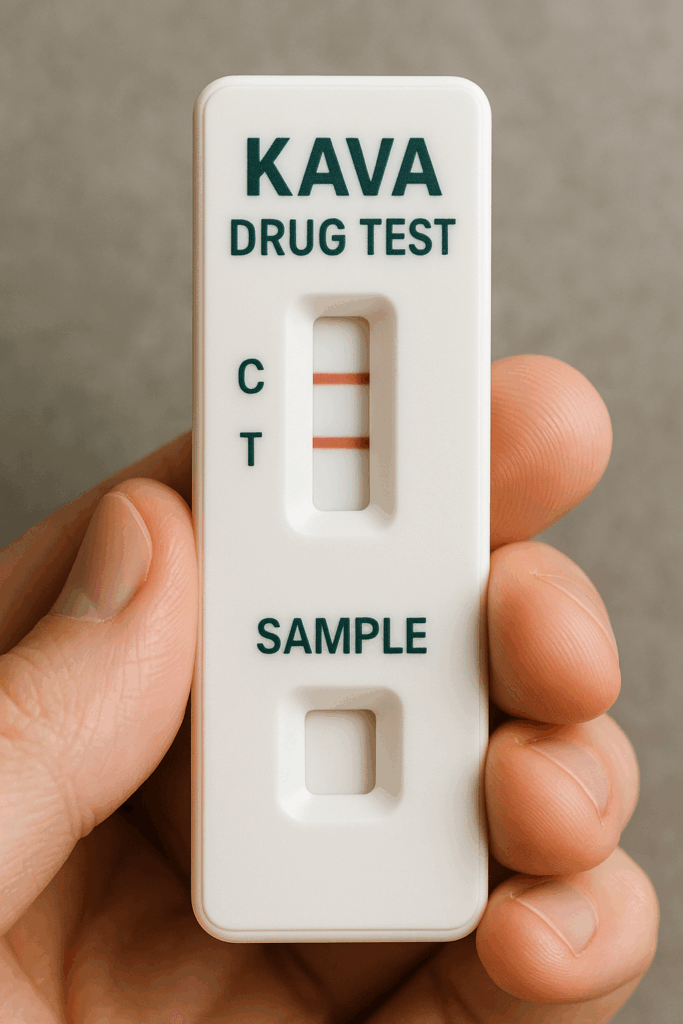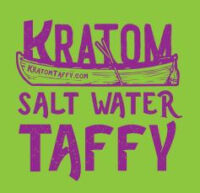Kava, derived from the roots of the Piper methysticum plant native to the South Pacific, has grown in popularity as a natural remedy for anxiety, stress, and insomnia. Often consumed in traditional ceremonies or as a relaxing drink in modern “kava bars,” it offers an appealing alternative to prescription medications. But with increasing scrutiny around workplace policies and drug screenings, a key concern has surfaced: Will kava show up on a drug test?
Let’s unpack the science, myths, and realities behind kava and its interaction with drug testing protocols.

🧠 What Is Kava and Why Is It Popular?
Kava contains compounds called kavalactones that influence the brain’s GABA receptors, producing calming, sedative, and euphoric effects. Unlike THC or opioids, kava is non-psychoactive in the traditional sense and does not alter cognition or induce hallucinations.
Uses of kava:
- Reducing anxiety and nervousness
- Improving sleep quality
- Muscle relaxation
- Social bonding in ceremonial settings
In 2025, the global market for herbal relaxants like kava continues to rise, with products like kava shots, capsules, and teas now mainstream.
🧪 Does Kava Show Up on a Drug Test?
The short answer: No, kava does not typically show up on standard drug tests.
Here’s why:
- Kava is not classified as a controlled substance in most countries, including the United States.
- Standard drug panels (like 5-panel or 10-panel tests) screen for substances such as:
- THC (marijuana)
- Cocaine
- Amphetamines
- Opiates
- PCP
- Metabolites of kava are not similar to drugs of abuse, making false positives unlikely.
However, this doesn’t make you immune from complications. Some rare situations and extended panels might raise flags (covered later in this post).
🔍 Types of Drug Tests and Kava
Let’s look at the most common types of drug testing methods and how kava interacts with each:
| Test Type | Will Kava Show Up? | Comments |
|---|---|---|
| Urine Test | No | Most common test. Kavalactones are not detected. |
| Saliva Test | No | Short detection window and does not check for kava. |
| Blood Test | No | Rare and expensive. May detect kava if tested specifically. |
| Hair Test | No | Long detection window, but kava is not included in screening. |
Even in DOT (Department of Transportation) or military tests, which are more rigorous, kava is not a targeted substance.
⚠️ Can Kava Cause a False Positive on a Drug Test?
There is limited evidence suggesting kava might cause false positives.
Potential Scenarios:
- Some anecdotal cases suggest kava might interfere with benzodiazepine results, especially with cheap or outdated testing kits.
- Cross-reactivity is rare but possible, especially when using inferior quality immunoassays.
Solution: If you’ve taken kava and receive a false positive, request a GC-MS (Gas Chromatography-Mass Spectrometry) confirmation test, which will rule out false alarms.
🧬 How Long Does Kava Stay in Your System?
The half-life of kavalactones varies depending on the form consumed and your metabolism. Here’s a breakdown:
| Form of Kava | Estimated Duration in Body |
|---|---|
| Kava tea or brew | 8–12 hours |
| Kava capsules or pills | 12–24 hours |
| Kava extracts or shots | Up to 48 hours |
Peak effects are usually felt within 30–90 minutes, and most metabolites are cleared within a few days.
🚧 Workplace and Legal Considerations
Even though kava is legal and doesn’t appear on drug tests, employers may still have concerns:
- Safety-sensitive jobs (e.g., machinery, aviation, healthcare) may prohibit any substance that impairs judgment.
- Kava can cause drowsiness, slow reaction time, and motor control issues—all risky in certain environments.
If you’re required to be 100% alert, kava use before work hours might be scrutinized.
What you can do:
- Inform HR if you’re taking kava for a medical or therapeutic reason.
- Be transparent during pre-employment screenings.
🌐 Is Kava Legal Everywhere?
As of 2025, kava is legal in most of the U.S., Canada, and Australia, but here’s a quick snapshot of its legality:
| Country/Region | Status |
|---|---|
| United States | Legal (some state restrictions) |
| Canada | Legal |
| Australia | Legal with restrictions |
| Germany | Legal with prescription only |
| UK | Restricted use only |
| South Pacific Islands | Traditional use widely legal |
Always check local laws before traveling or consuming kava in a new area.
💊 Kava vs. Prescription Medications on Drug Tests
Here’s how kava stacks up against some common prescription medications that do appear on drug tests:
| Substance | Drug Test Detection | Status |
|---|---|---|
| Kava | No | Legal OTC |
| Benzodiazepines | Yes | Rx only |
| SSRIs (e.g., Prozac) | No (usually) | Rx only |
| Medical Cannabis | Yes (THC) | Legal in some states |
| Kratom | Sometimes (in advanced tests) | Legal gray area |
🧘♀️ Safe Use Tips for Kava Consumers Concerned About Testing
If you’re consuming kava and are subject to drug testing, here are a few best practices:
- Buy from reputable sources to avoid adulterants.
- Avoid kava blends with other herbal sedatives that might complicate testing.
- Time your consumption to avoid appearing sedated at work.
- Hydrate and eat well to help with faster metabolization.
- Keep product labels or packaging in case verification is needed.
❓ Frequently Asked Questions (FAQ)
Q1. Can kava cause me to fail a drug test?
No. Standard drug tests do not detect kava or its components.
Q2. Is kava safe to use before a drug screening?
Yes, but use it in moderation. Though it won’t trigger a positive, signs of sedation may raise concerns.
Q3. How long does kava stay in your system?
Depending on the form and your metabolism, kava can stay in your system for 12 to 48 hours.
Q4. Can kava affect my driving test or breathalyzer?
While it won’t affect a breathalyzer (no alcohol), it can cause drowsiness, which may impair driving ability. Always use caution.
Q5. Will kava interact with other drugs on a panel test?
Generally, no. But in rare cases, it may cause false positives for benzodiazepines or other sedatives. Follow up with a GC-MS test if needed.
Q6. Is kava banned in any states or countries?
It’s legal in most U.S. states. However, countries like Germany and the UK restrict it to medicinal or research use only.
🏁 Conclusion: Kava and Drug Tests – Low Risk, High Awareness
Kava is generally safe when used responsibly and does not show up on standard drug tests. However, its sedative effects may still be frowned upon in high-alert professions. The key is transparency, timing, and sourcing quality products.
As herbal supplements become more integrated into wellness routines, understanding the implications of kava consumption—especially in the context of modern employment—is essential.
✅ Key Takeaways:
- Kava is not included in standard drug tests.
- False positives are rare, but possible.
- Choose high-quality sources and know your workplace policy.
- Legal status varies—check local laws before travel or use.
